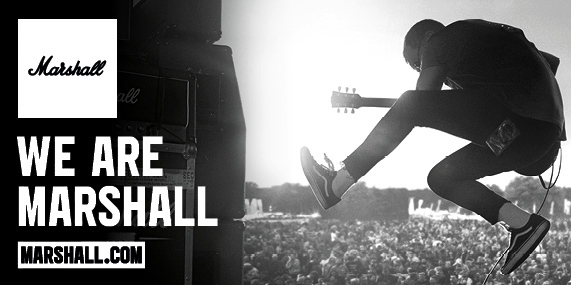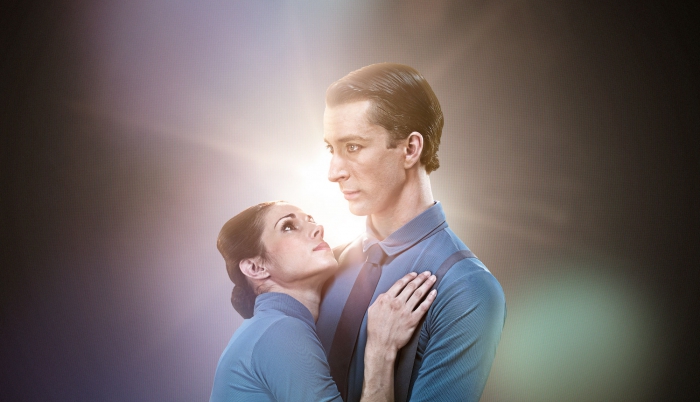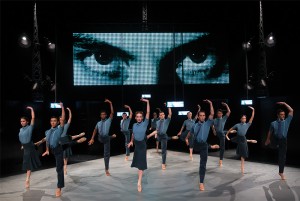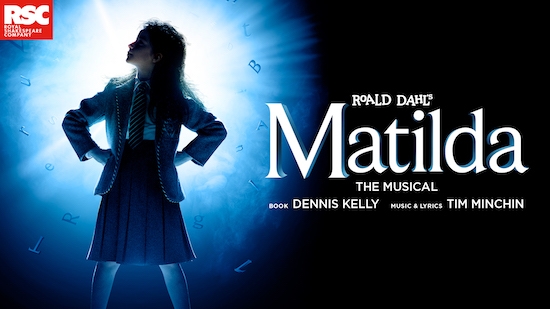Northern Ballet is renowned for taking inspiration from literature, classical dance, theatre, opera and popular culture to develop new and original productions, writes Georgina Butler.
The latest masterwork to be put under observation and reimagined through dance by the Company is the cult classic political philosophy novel 1984.
George Orwell’s dystopian drama follows the moves of one Winston Smith. Winston lives in a world of absolute conformity where his every action is scrutinised by Big Brother, a sinister surveillance squad. However, when Winston crosses paths with a woman named Julia he dares to rebel by falling in love…
The significance of the surveillance state in our society demonstrates the enduring relevance of Orwell’s perceptive predictions. We may not have gone as far as branding independent thinking as “thoughtcrime” but the persecution of individualism is something that threatens us all as homogeneity and fear of difference reign.
In 1984, darkness always looms and lives are joyless. However, transfixed by a special small-screen showing of choreographer Jonathan Watkin’s interpretation for Northern Ballet on BBC Four last night, I could find nothing but joy in the power of dance to tell this tale of tyranny.
Combining cutting-edge on-stage digital technology with slick and inventive choreography, the production is boldly cinematic in its approach and lends itself well to being broadcast. The recording (filmed during live performances at Manchester’s Palace Theatre on the first part of 1984’s world premiere tour last year) offers just the right level of intimacy while still keeping the distance necessary for viewing a ballet. As spectators, we feel close to the action (so don’t miss any of the footwork) but remain at arm’s length (so appreciate the staging in its entirety).
Winston works at the Ministry of Truth, where he falsifies historical records of events in accordance with current Party Policy and erases all trace of members who have been eliminated for dissent. A revolutionary and romantic character, he starts to write a diary in which he records his rebellious thoughts towards Big Brother. When he falls for Julia, his co-worker, the pair endeavour to evade the gaze of the omnipresent government intelligence that seeks to constrain all citizens. 1984 is a story about truth, forbidden love, community and loyalty. With so many opportunities for tension-fuelled ensemble dancing and tender pas de deux moments, it makes for a chilling, yet compelling, ballet!
Premier dancer Tobias Batley is an irresistible resistor, playing the rebel who defies the political system with expression, emotion and energy. His on-stage chemistry with Northern Ballet co-star Martha Leebolt is now legendary and the couple do not disappoint in any of their scenes as Winston and Julia. Their short-lived love story had me on tenterhooks. Losing themselves in the movement, their ecstasy in the throes of passion makes for a fascinating contrast with the anguish experienced in their culture of crippling conformity. So used to answering to a higher, hidden, all-seeing power, the cautious glances they throw back over their shoulders at the end of Act 1 are enough to send shivers racing up and down your spine.
The novel is sinister and devised to disturb the reader. So too is Jonathan Watkin’s choreography. A dynamic movement vocabulary (stemming from neo-classical ballet with plenty of influence from contemporary technique) creates a constrained, totalitarian landscape where everyone is under stifling control. Northern Ballet’s dancers make for a well-oiled corps, dancing together as one unit with parallel feet and inverted positions. Moving as a rigid, robotic and regimented group they personify Orwell’s oppressive vision. The only time individualised movement is permitted is during the ‘Two Minutes Hate’, an obligatory daily activity designed to provoke hostility towards the enemies of the Party. This is a wild, aggressive outbreak of corporeal commotion, accompanied by flashing lights and crashing music.
Juxtaposed against such dismal, antagonistic uniformity, when Martha Leebolt appears as Julia she is truly a breath of fresh air. Her movements are more expansive, more expressive – simply more full of life. Tobias Batley’s Winston, in turn, embraces this freedom, adopting a fluid quality of movement whenever the pair strive to sidestep Big Brother.
Composer Alex Baranowski’s music - a soundscape of mechanical, metallic measures, with a resonant and emotional melody layered on top - is ruthlessly repetitive yet startlingly effective. Primarily evoking the monotony of the Ministry of Truth, the pulsating rhythms then seem to echo the throbs of the two lovers’ hearts as their romance heats up. The visuals (an unsettling giant eye staring down and periodically blinking at the dancers and the audience; various short clips of animated text) add to the intensity, ensuring we are thoroughly immersed in Winston’s struggle.
As 1984 so readily illustrates, freedom is difficult. Still, it is only through freedom that we get creativity and can really be true to ourselves. This notion is something that – let’s face it - everyone needs a nudge to remember from time to time.
Bravo, then, to Northern Ballet and Jonathan Watkins for taking on the creative challenge of translating such an evocative, enduring novel into mesmerising dance. They have been overwhelmingly successful in transporting the tale from page to stage. Never mind Big Brother, I’ll be watching the Company’s movements very closely to see what terpsichorean task it will tackle next!
Georgina Butler
> Northern Ballet will perform Swan Lake at Milton Keynes Theatre from Tuesday April 26 until Saturday April 30 2016, with a performance of Tortoise & the Hare on Friday April 29 2016. Call the Box Office on 0844 871 7652 or visit http://www.atgtickets.com/venues/milton-keynes-theatre/ to book.
For more dance and theatre reviews, news, interviews and features by Georgina, visit http://georginabutler.wordpress.com and follow her on Twitter @GeorginaLButler.


















